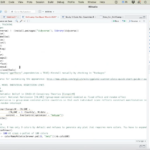Publics Records for Wofford Rodney: Public records are vital resources for anyone seeking information about individuals, including Rodney Wofford. These records offer insights into various aspects of a person’s life, such as their addresses and associated properties. This post will explore what information is available about Rodney Wofford and how readers can access these records easily.

It can be challenging to navigate the world of public records due to privacy concerns and the sheer volume of data. However, this guide will break down the essential steps to locate information about Wofford, ensuring that even those unfamiliar with public records can find what they need without hassle.
Whether for personal reasons or research, understanding how to use public records can provide valuable insights. Readers are encouraged to stay informed about the tools available for accessing this information.
Key Takeaways
- Public records can reveal valuable information about individuals.
- Accessing these records is simpler than many think.
- Privacy concerns may affect the availability of certain details.
Background of Wofford Rodney
Wofford Rodney has a varied background that includes both residential details and public records. This section outlines his biographical information and any significant professional achievements that are publicly noted.
Biographical Overview
Rodney Wayne Wofford was born in 1980. He is registered as a voter in Denver, Colorado, but has no political party affiliation. His current address is 1112 N Xanthia St Apt A, Denver, CO 80220.
In addition to his voter registration, records indicate that he may have links to other addresses in Colorado. There is also evidence of a Rodney Wofford residing in Spartanburg, South Carolina, though it is unclear if this individual is the same person.
Given the popularity of the Wofford surname, further context on his family background might be beneficial.
Professional Achievements
Professional records for Rodney Wofford are somewhat limited. However, there are mentions of individuals with the Wofford surname in various locations, implying a potential for diverse career paths.
For example, Rodney L. Wofford in Spartanburg, South Carolina, has court or arrest records, hinting at some legal issues. Still, specific professional accomplishments remain unclear.
Likewise, Kareem Wofford from Niles, Michigan, showcases how the surname appears in multiple states, potentially indicating a broader legacy or community impact. More comprehensive skills or career details would be required for a complete understanding of Rodney’s achievements.
Public Records Basics
Public records are important documents that help keep government actions transparent. They give citizens access to information about government activities and decisions. Understanding public records can help individuals know their rights and how to obtain necessary documents.
Definition and Purpose
Public records are official documents created or maintained by government agencies. They include a wide range of materials, such as letters, reports, and meeting minutes. These records must be available to the public, ensuring transparency in government operations.
The primary purpose of public records is to inform citizens about government activities. They allow individuals to see how decisions are made and how public resources are used. This access helps hold government agencies accountable to the public. Furthermore, public records support democratic principles by promoting informed citizen participation.
Types of Public Records
There are various types of public records, each serving different functions. Some common types include:
- Legislative Records: Documents related to laws and regulations.
- Administrative Records: Reports and decisions made by government agencies.
- Court Records: Legal documents that include case files, judgments, and dockets.
- Vital Records: Official documents such as birth, marriage, and death certificates.
Each type of record provides essential information. For example, legislative records help citizens understand new laws, while court records offer insight into the justice system. By knowing the different types of public records, individuals can better navigate the process of requesting information.
Accessing Public Records
Accessing public records involves understanding the laws that govern these documents and the procedures for obtaining them. This section covers the legal framework, types of records available for individuals, and the steps to request these records.
Legal Framework
Public records are governed by specific laws that vary by state. In the United States, many states have adopted Freedom of Information Acts (FOIA) that allow citizens to request access to public records.
In Florida, for example, email addresses are also considered public records. This means that individuals must be careful about sharing their contact information when reaching out to government entities. The transparency provided by public record laws is vital, as it holds government agencies accountable and informs the public about official actions.
Public Records for Individuals
Public records, including arrest records, court documents, and property ownership details, provide crucial information for individuals and businesses alike. These records offer insights into a person’s legal history, property status, or even their financial standing, which can be invaluable in various sectors, from legal research to real estate.
At benheine.com, original news articles about e-marketing, entrepreneurship, artificial intelligence, finance, copywriting, technology, education, content creation, video making, photography, art, web design, productivity, writing, informatics and more!. The intersection of these industries with public records opens up opportunities for business owners, marketers, and innovators to make data-driven decisions and craft impactful strategies.
Leveraging Public Records in E-Marketing and Entrepreneurship For entrepreneurs and digital marketers, public records can be an untapped resource to refine strategies and target audiences more effectively. By analyzing trends in property ownership or understanding a potential client’s legal background through public documents, marketers can fine-tune their content and offerings.
Procedure for Requesting Records
Requesting public records typically begins with identifying the specific records needed. Requesters should gather essential information such as names, dates, and case numbers to help locate the records efficiently.
Most agencies provide a formal request form. It is advisable to check if there are any associated fees or specific guidelines on how to submit the request.
Requesters can often use online services or visit the agency in person. Many states offer online databases, which can simplify the search process. If entering a public record request electronically, individuals should avoid sharing private email details when possible, as these may become public.














